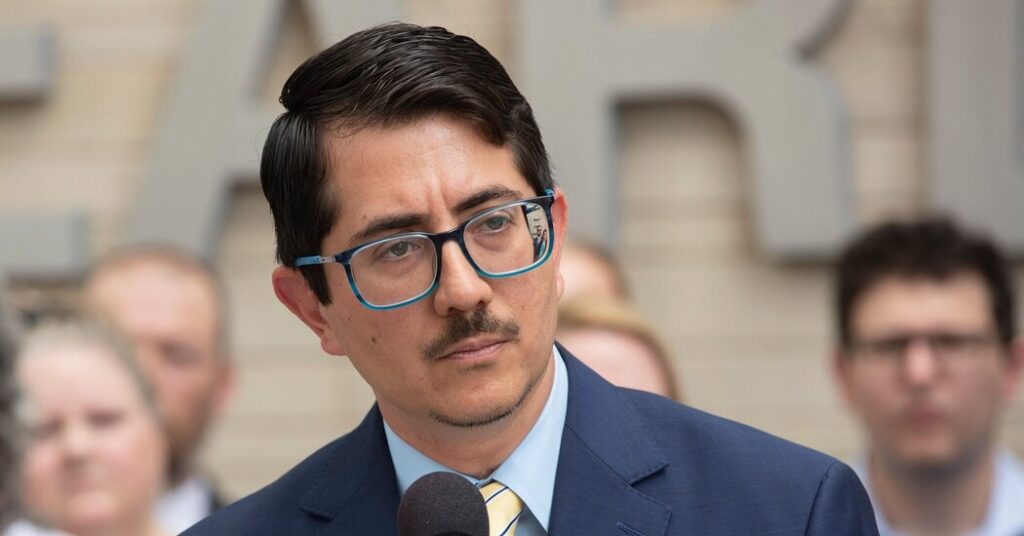Texas prosecutors said Tuesday they will ask the court to overturn Gov. Greg Abbott's pardon of a man convicted of shooting and killing a Black Lives Matter protester in Austin in the summer of 2020.
The Republican governor's pardon last month of Daniel S. Perry, who claimed self-defense against armed protesters, was hailed by conservatives as an affirmation of the state's “self-defense” protections.
But the case drew outrage from protesters' families, civil rights groups and even from Travis County District Attorney Jose Garza, who secured the convictions.
Garza, a Democrat, said Tuesday he would petition the state's highest Court of Criminal Appeals to overturn the pardon, arguing that the governor violated the constitutional principle of separation of powers by interfering with court action.
“It's up to the justice system to determine whether or not you're guilty,” Garza said at a news conference that was also attended by the family of slain protester Garrett Foster, 28, a former U.S. Air Force mechanic.
But Perry's lawyers countered that the governor has the firm authority to grant pardons and accused Garza of “acting recklessly in an attempt to overturn Governor Abbott's pardon.”
“The power of pardon is vested in the executive branch of government and cannot be questioned by the judicial branch,” attorney Clint Broden said in a statement.
Perry, an active-duty U.S. Army sergeant at the time, was working as an Uber driver in downtown Austin on the night of July 25, 2020, when he drove into a crowd of protesters.
That's when a group of people, including Foster, approached Perry's car. Foster, who, like Perry, is white, was wearing a bandana over his face and had an AK-47-style rifle slung over his shoulder. Perry's lawyers say Foster began pointing the gun at him, which prompted Perry to open fire.
Perry was sentenced to 25 years in prison last May after prosecutors presented evidence of his past racist online comments and said a psychology expert characterized him as “basically a loaded gun.”
Abbott's decision to pardon came at the recommendation of the state's Board of Pardons and Paroles, whose members are appointed by the governor. Texas law requires that the governor grant a pardon upon the recommendation of the board.
Abbott's office did not immediately respond to a request for comment Tuesday. In a statement issued at the time of the pardon, Abbott said the committee conducted a “thorough investigation” and stood by its findings. He also argued that Texas “has one of the strongest 'self-defense' laws, which cannot be overturned by a jury or a progressive district attorney.”
On Tuesday, Sheila Foster, the protester's mother, joined the district attorney in denounceing the pardon, saying her son was “murdered on American soil” while exercising his “First Amendment rights.”
Any attempt to reinstate Garza's conviction will be up to the Texas Court of Criminal Appeals, whose nine judges are all Republicans.
Separately, Democratic attorneys general from 14 states have been pressuring the U.S. Department of Justice to open a civil rights investigation into Foster's killing, saying in a letter last month that they are “concerned that these 'self-defense' laws encourage armed vigilantes to attend protests and prepare to shoot and kill those exercising their First Amendment rights.”
J. David Goodman Contributed report.

